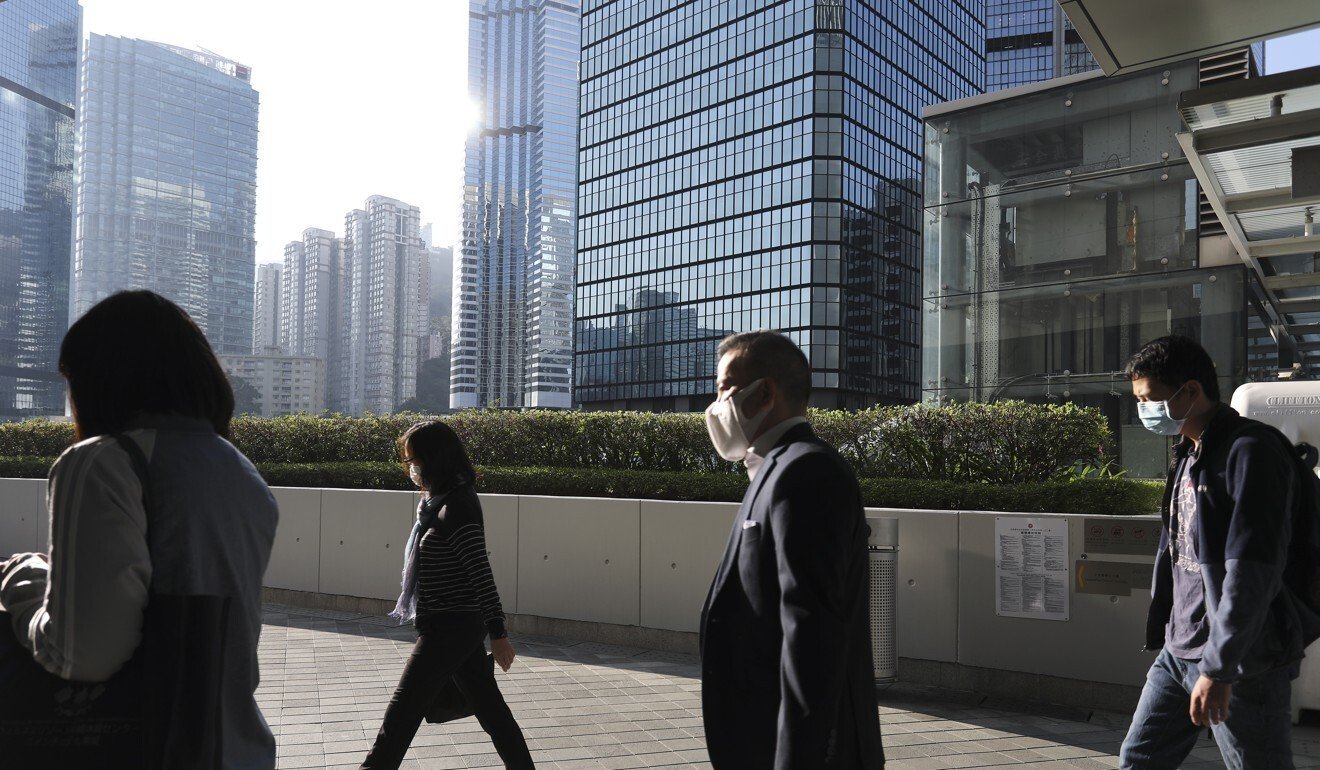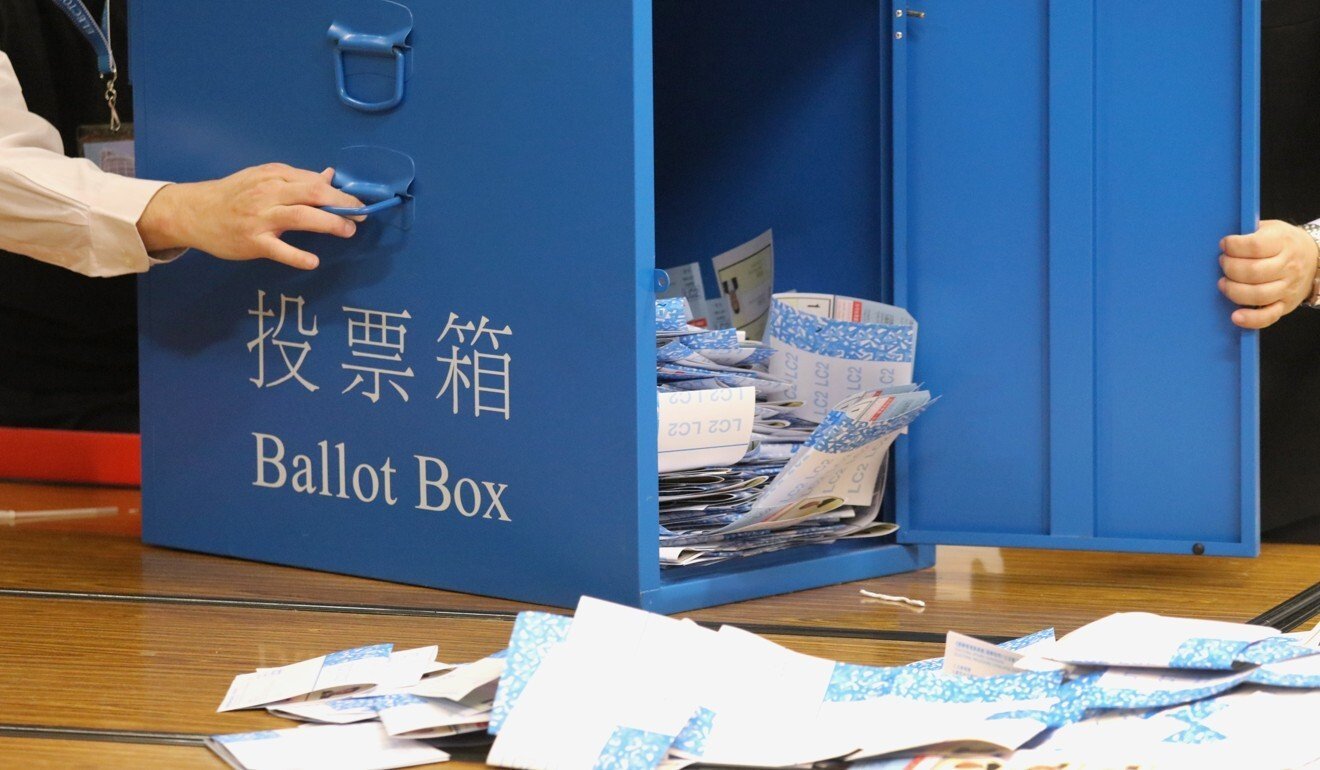
BN(O) passport holders ‘may face ban from public office in Hong Kong’
Beijing is mulling whether to ban British National (Overseas) passportholders in Hong Kong from public office in retaliation over London’s decision to offer them a visa path to the right of abode, the Post has learned.
Officials were divided, however, on whether they should also call for the more drastic step of denying Hongkongers with such BN(O) status the right to vote in the city.
These proposals are believed to be in a suite of Hong Kong issues to be discussed when China’s top legislative body meets next week. But a final decision may not be made or announced even after the session, sources said.
The National People’s Congress Standing Committee (NPCSC) stated on its website on Tuesday night that the session would be from next Wednesday to Friday. Items on the agenda include resolutions on legal aid, wetland protection and the creation of a financial court in Beijing.
No Hong Kong-related matter had been tabled as of Wednesday but sources said this could change soon. They added that while the three-day meeting might not involve immediate decisions on Hong Kong issues, delegates were expected to further deliberate Beijing’s plans, including proposed new rules about holding public office in Hong Kong, and proportionate ways to retaliate against the British government’s new pathway for city residents to acquire citizenship.

Hong Kong is facing a possible surge in emigration after Britain offered a new visa scheme for those eligible for BN(O) status after Beijing imposed the national security law on the city on June 30 last year.
Beijing warned then it could stop recognising BN(O) passports. It stopped short of revealing any punitive steps while awaiting the actual roll-out of the new British scheme, which begins accepting applications on January 31.
Hong Kong and mainland authorities have accused Britain of violating the 1984 memorandums of understanding exchanged between London and Beijing.
According to those agreements, people in Hong Kong born before the 1997 handover are eligible for British National (Overseas) passports, a class of British citizenship that does not confer right of abode in Britain but serves mainly as a travel document.
Tam Yiu-chung, the city’s sole delegate to the NPCSC, declined to comment on Wednesday whether any Hong Kong item could be placed on the meeting agenda.
“In the past, some items were only added to the agenda on the first day of the session,” he said.
Government adviser and former Hong Kong security chief Regina Ip Lau Suk-yee, who called for Beijing to strip residents with foreign citizenship of their right to live in the city, said the new proposals were “tougher” than what she had in mind.
“I was talking about BN(O) holders losing their permanent resident status after emigration abroad … But if the objective is to stop BN(O) holders from taking up public office altogether, that goes beyond my proposal.”
Hong Kong leader Carrie Lam Cheng Yuet-ngor distanced herself on Tuesday from Ip’s suggestion. Describing Britain’s offer as “a slap in the face of Chinese authorities”, Ip had said it might be time for Beijing to end its special treatment of Hongkongers and enforce its own nationality law in the city “after a specified cut-off date”.
The sources said of the two proposals to ban BN(O) passport holders from public office and to deny them the right to vote, the first disqualification might be more appropriate and legally defensible.
However, some pro-Beijing loyalists were still keen on the idea of disenfranchising BN(O) holders, though legal complications could make such a ban difficult to execute, according to the same sources.

Under the Basic Law, Hong Kong’s top politicians, such as the chief executive, chief justice, principal officials, government advisers in the Executive Council, as well as the Legislative Council’s president and all lawmakers in geographical constituencies have to be permanent residents with no right of abode in any foreign country.
But foreign passport holders are allowed to be civil servants, including police officers.
Out of the remaining 35 lawmakers in functional constituencies, only one each from the 12 sectors can hold foreign passports. They are from the legal, accountancy, engineering, tourism, commercial, industrial, banking, insurance, financial services, architectural, real estate, and import-export sectors.
Analysts believed that if the proposal was adopted, all lawmakers, district councillors, top civil servants and other public officers would be required to give up their BN(O) passports, if they held one.
Pro-establishment legislator Gary Chan Hak-kan, chairman of Legco’s security panel, said it was reasonable to tighten the restrictions on foreign passports.
“Hong Kong people’s dual nationality is an issue that needs to be resolved; it is very rare in foreign countries that people with foreign passports can become legislators or public officers,” he said.
“It’s strange that you can swear allegiance to the city, but you actually hold a foreign passport. So it’s a good idea to clarify rules on that and follow foreign examples.”

China’s Nationality Law has applied in Hong Kong since the city returned to Chinese rule in 1997. Under the law, Beijing does not recognise dual nationality for any Chinese national.
But under a resolution adopted by the NPCSC in 1996, “all Hong Kong Chinese compatriots are Chinese nationals”, regardless of whether they are holders of the BN(O) passport.
It also stipulated that after the 1997 handover, Hong Kong residents could continue to use travel documents issued by the British government. Also, the Immigration Department would be responsible for handling nationality applications in Hong Kong.
Sources also told the Post on Wednesday that Beijing’s plan to overhaul Hong Kong’s electoral system could also be discussed at the NPCSC meeting next week.
Confirming an earlier report by the Post, a mainland official source said on Wednesday that the central government was planning to table a Hong Kong electoral reform package at the annual plenary session of the NPCSC, which will kick off on March 5.

“The NPCSC is going to have further discussion and deliberation … The aim of the meeting next week is to get the package ready for tabling at the plenary session,” the source said.
Last month, sources told the Post that Beijing was planning a drastic revamp of Hong Kong’s 1,200-member Election Committee by abolishing all 117 seats likely to be taken up by opposition district councillors to curb their influence in the 2022 leadership race.
Proposals were also being studied to get district councillors to take an oath of allegiance that already applied to Legco members and which was recently introduced for civil servants.
Even though the NPCSC concluded its five-day meeting on December 26 without making any reference to such plans, sources said the omission only meant Beijing needed more time to work out the steps for draining the system of “undesirable elements”, with the standing committee deferring the decision until the March plenary session.










